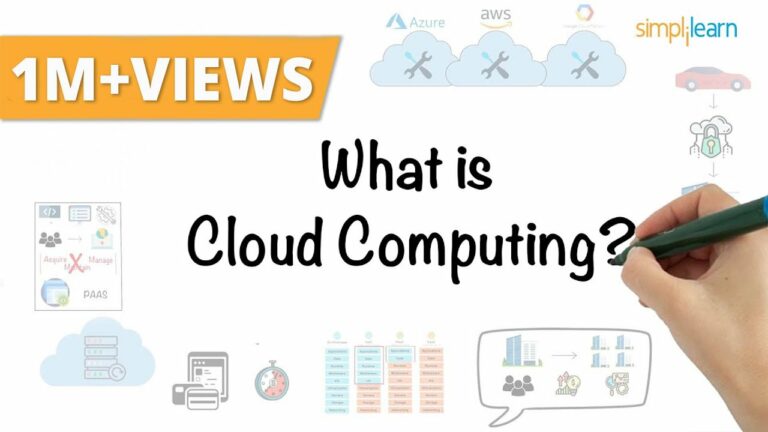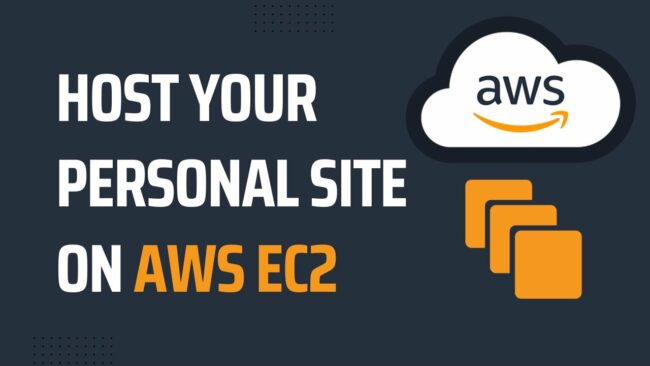Shared Hosting vs. Dedicated Hosting
Are you in the process of launching a website and trying to decide between shared and dedicated hosting? It’s important to understand the key differences between the two options before making a decision. While dedicated hosting may seem like the obvious choice for a high-traffic website, it’s not always the best option. In fact, shared hosting might just be the way to go. First, let’s break down the differences between shared and dedicated hosting.
Shared hosting means that multiple websites are hosted on the same server, sharing resources such as CPU, RAM, and storage space. On the other hand, dedicated hosting means that a single website is hosted on its own server, which means it has exclusive access to all of the server’s resources. While dedicated hosting may sound more appealing, it’s important to consider the benefits of shared hosting before making a decision.
Understanding the Key Differences between Shared and Dedicated Hosting
By understanding the distinctions between the two options, you’ll be better equipped to make an informed decision about which type of hosting is right for you. Shared hosting is a cost-effective solution that allows multiple websites to share resources on a single server. In contrast, dedicated hosting provides a single website with its own server, which means that it has access to all of the server’s resources. When it comes to the pros and cons of shared hosting, one of the biggest advantages is cost-effectiveness. Shared hosting plans are typically much cheaper than dedicated hosting plans. Shared hosting also offers convenience and ease of use, as the hosting provider handles most of the technical details.
However, shared hosting plans may have performance factors that can impact website speed and uptime due to the shared nature of the resources. On the other hand, dedicated hosting offers unparalleled performance and reliability. Since the server’s resources are entirely dedicated to a single website, there is no need to worry about other websites consuming too many resources. This translates to faster loading times, better website uptime, and more control over the server. However, dedicated hosting plans are often much more expensive than shared hosting plans, making them less accessible to budget-conscious website owners.
Why Dedicated Hosting is Not Always the Best Option
You might be tempted to jump on the dedicated hosting bandwagon, but before you do, let’s take a closer look at why it may not be the shining star you think it is – it’s like a flashy car that’s expensive to maintain. Dedicated hosting is a great option for websites that receive a high volume of traffic and require a lot of resource allocation. However, for a website that doesn’t need as many resources, dedicated hosting can be a costly mistake.
Here are three reasons why dedicated hosting may not be the best option for you:
- Cost-effectiveness: Dedicated hosting is significantly more expensive than shared hosting. If your website doesn’t require a lot of resources, investing in dedicated hosting may not be worth the extra cost. Shared hosting plans are much more affordable and can still provide reliable service for smaller websites.
- Resource allocation: With dedicated hosting, you are responsible for managing all of your own resources. This can be a time-consuming and daunting task for small business owners who don’t have the expertise to handle it themselves. Shared hosting providers take care of all resource allocation, making it a hassle-free option for website owners.
- Scalability: Dedicated hosting plans are not always scalable. If your website experiences a sudden surge in traffic, you may have to upgrade to a more expensive plan to accommodate the increased demand. Shared hosting plans, on the other hand, can easily be scaled up to meet growing needs.
In conclusion, while dedicated hosting can be a great option for larger websites with high traffic volume, it may not be the best choice for smaller websites. Shared hosting plans offer cost-effective, hassle-free solutions for websites that don’t require as many resources. Before committing to any hosting plan, it’s important to carefully consider your website’s needs and budget.
Benefits of Shared Hosting
If you’re looking for an affordable and hassle-free option for your website, there are plenty of benefits to choosing a shared hosting plan. One of the main advantages of shared hosting is the cost savings. With shared hosting, multiple websites share the same server, which means the cost is split among all the users. This makes it much cheaper than dedicated hosting, where you have to pay for the entire server yourself. Another benefit of shared hosting is the ease of use. Shared hosting plans often come with pre-installed software, making it easy to get started with your website.
You don’t need to worry about server maintenance, security updates, or any of the technical aspects of hosting a website. This is ideal for those who are new to website building or don’t have the time or knowledge to manage their own server. However, shared hosting does have its limitations. Since you’re sharing resources with other websites, you may experience slower load times if one of the sites on your server is experiencing a lot of traffic. Additionally, you may have limited access to certain features and customization options. But for most small to medium-sized websites, shared hosting is the best choice in terms of affordability, ease of use, and reliability.
How Shared Hosting Works
Understanding how shared hosting works is like being at a potluck dinner where everyone brings their own dish to share, but the portions may vary depending on the number of guests and their appetite. In a shared hosting setup, a single server hosts multiple websites, and each website shares the same pool of resources, including CPU processing power, memory, and disk space. The hosting provider allocates resources based on the needs of each website, ensuring that each website has the necessary resources to run smoothly.
Resource allocation in shared hosting plans is done dynamically, meaning that the resources are distributed among websites as needed. If one website experiences a sudden surge in traffic, the hosting provider will allocate more resources to that website to prevent it from slowing down or crashing.
On the other hand, if a website is using more than its fair share of resources, the hosting provider will limit the resources allocated to that website to ensure that other websites on the server do not suffer. In summary, shared hosting works by dividing server resources among multiple websites, ensuring that each website has the necessary resources to run smoothly. Resource allocation is done dynamically, meaning that resources are distributed among websites based on their needs. Shared hosting is an efficient and cost-effective way for small to medium-sized websites to get online and reach their audience without breaking the bank.
Choosing the Right Shared Hosting Provider
When choosing a shared hosting provider, reputation should be one of your top considerations. Look for reviews and ratings from previous customers to get an idea of the provider’s reliability and performance. Additionally, customer support is crucial in case you encounter any issues with your website, so make sure to choose a provider that offers 24/7 support through various channels. Finally, compare the features and pricing of different providers to find the best value for your budget and website needs.
Reputation
You’ll breathe easier knowing that your reputation is in good hands with shared hosting. Shared hosting providers have a vested interest in maintaining their reputation and that of their clients. Since they share resources and infrastructure, any security breaches or performance issues can affect all clients on the server. This means that shared hosting providers prioritize security and performance measures to protect all clients and maintain their reputations. In contrast, dedicated hosting may not prioritize these measures as heavily since they have fewer clients to worry about.
Additionally, shared hosting advantages include the ability to easily scale your website as your business grows. Most shared hosting providers offer different plans and packages that you can choose from, depending on your needs. This means that you can start with a basic plan and upgrade as your website traffic increases. This flexibility and scalability mean that you won’t have to worry about outgrowing your hosting plan and can focus on growing your business. Overall, shared hosting is a reliable and cost-effective solution for businesses and individuals looking to host their websites without compromising on performance or security.
Customer Support
If you ever need help, customer support is there to assist you and ensure that your website runs smoothly. When it comes to shared hosting, you can expect a quick response time from your hosting provider’s support team. This is because shared hosting companies have a larger staff that can handle a high volume of support requests. In addition, since there are more customers on a shared hosting plan, the support team has more experience dealing with a variety of issues that may arise. They’re able to quickly identify the root of the problem and provide a solution within a short amount of time.
Another benefit of shared hosting customer support is the availability of language support. If English isn’t your primary language, you can rest assured that most shared hosting providers offer multilingual support. This means that you can communicate with the support team in your native language, making it easier to understand and resolve any issues that you may have. Additionally, the support team can provide you with resources and guides in your preferred language, which can be helpful if you need assistance with setting up your website or managing your hosting account. With shared hosting, you can expect reliable and efficient customer support that’s there to help you every step of the way.
Features and Price Comparison
Looking for the right web hosting plan can be overwhelming, but understanding the features and price comparisons of different options can help you make an informed decision. When comparing shared vs dedicated hosting, one of the main differences is the cost. Shared hosting plans are typically much more affordable than dedicated hosting plans. This is because, with shared hosting, you are sharing server resources with other websites, whereas with dedicated hosting, you have an entire server to yourself. Another factor to consider when comparing shared vs dedicated hosting is the features available.
While dedicated hosting offers more control and customization options, shared hosting plans often come with an uptime guarantee and scalability options. This means that if your website experiences a sudden increase in traffic, your hosting provider can adjust the resources available to you quickly and easily, ensuring your website remains online and functioning smoothly. Additionally, with an uptime guarantee, you can rest assured that your website will be accessible to your audience, increasing your credibility and reliability. Overall, when considering the features and price comparison, shared hosting is often the way to go for small to medium-sized websites.
FAQs
What is the cost difference between shared and dedicated hosting?
You’re probably wondering about the cost difference between shared and dedicated hosting. Well, there are several factors that affect hosting costs, such as the provider, the server space, and the level of support provided. But when it comes to value for money comparison, shared hosting is the way to go. With shared hosting, you’re sharing a server with other websites, which means the cost is split among all users. This makes it a more affordable option compared to dedicated hosting, where you have an entire server to yourself. So, if you’re looking for cost-effective hosting options, shared hosting is definitely worth considering.
Can I upgrade from shared hosting to dedicated hosting in the future?
When considering upgrading from shared hosting to dedicated hosting, there are several factors to consider. On the pro side, dedicated hosting offers more control and customization options, as well as increased security and reliability. However, the cons include higher costs, the technical expertise required, and the potential for downtime if the server experiences issues. It’s important to weigh these factors carefully before making a decision. Additionally, it’s important to ensure that your website’s traffic and resource needs justify the cost of dedicated hosting. Ultimately, it’s possible to upgrade from shared hosting to dedicated hosting in the future, but it’s important to carefully consider the pros and cons and ensure that it’s the right choice for your website.
How many websites can I host on a shared hosting plan?
Are you wondering how many websites you can host on a shared hosting plan? Well, the good news is that most shared hosting plans offer scalability options, which means you can easily upgrade your plan as your website traffic grows. However, hosting multiple sites on a shared hosting plan has its pros and cons. On one hand, it can be cost-effective and convenient to manage all your sites in one place. On the other hand, if one site experiences a sudden surge in traffic, it could slow down the performance of your other sites. Ultimately, the decision to host multiple sites on a shared hosting plan depends on your specific needs and priorities.
What level of security is provided by shared hosting providers?
When it comes to the level of security provided by shared hosting providers, you can rest assured that your website is in safe hands. Most shared hosting providers offer comprehensive security measures such as firewalls, malware scanning, and regular backups to ensure the safety of your data. However, if you require additional security features or have specific compliance requirements, you may want to consider cloud hosting or VPS hosting options. These hosting solutions offer more control and customization options, allowing you to tailor your security measures to meet your specific needs. Ultimately, the level of security provided by your hosting provider will depend on your individual requirements and the type of hosting you choose.
What kind of support can I expect from a shared hosting provider?
When it comes to choosing a shared hosting provider, one of the biggest benefits is the level of support you can expect. With 24/7 support and technical assistance, you can rest assured that any issues or concerns will be addressed quickly and efficiently. Whether you need help setting up your website, troubleshooting technical glitches, or just have general questions, a good shared hosting provider will be there for you every step of the way. With the added benefit of a community of users to draw on for support, you’ll have access to a wealth of knowledge and expertise to help you get the most out of your hosting experience.
In conclusion, when it comes to hosting options, shared hosting is definitely the way to go for most individuals and businesses. While dedicated hosting may seem like the best option for those who require more control and resources, it often comes with a hefty price tag and requires technical expertise to manage. On the other hand, shared hosting provides a cost-effective solution that can easily be managed by those with little to no technical experience.
To put it simply, shared hosting is like living in an apartment complex where you share resources with your neighbors, while dedicated hosting is like owning a mansion where you have complete control and privacy. However, just like owning a mansion, dedicated hosting can be expensive and requires maintenance and upkeep. By choosing shared hosting, you can enjoy the benefits of a supportive community and shared resources without breaking the bank. So, if you’re looking for a reliable hosting solution that won’t drain your wallet, shared hosting is definitely the way to go.







